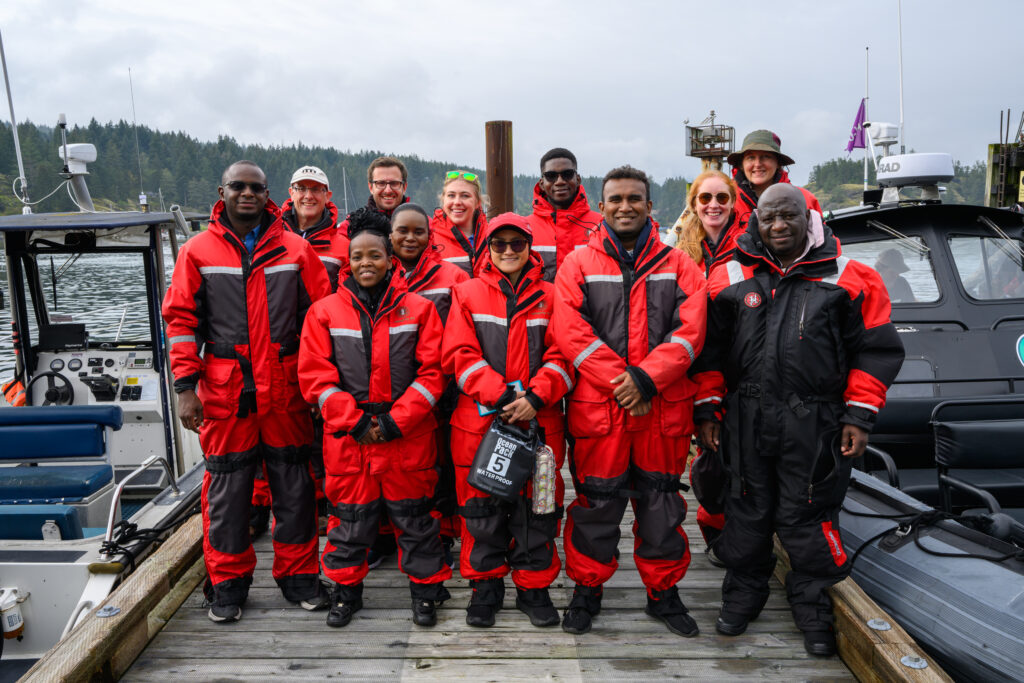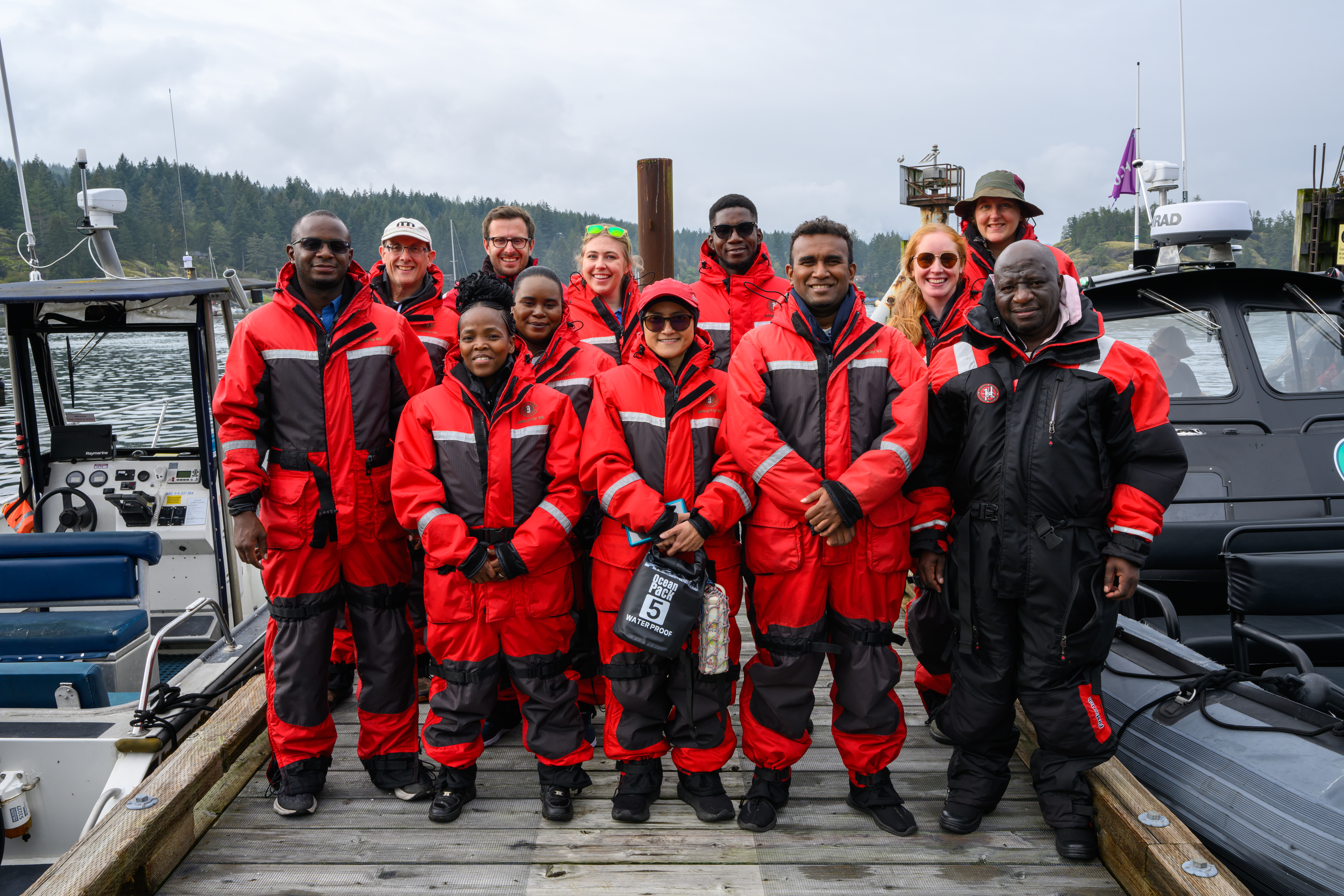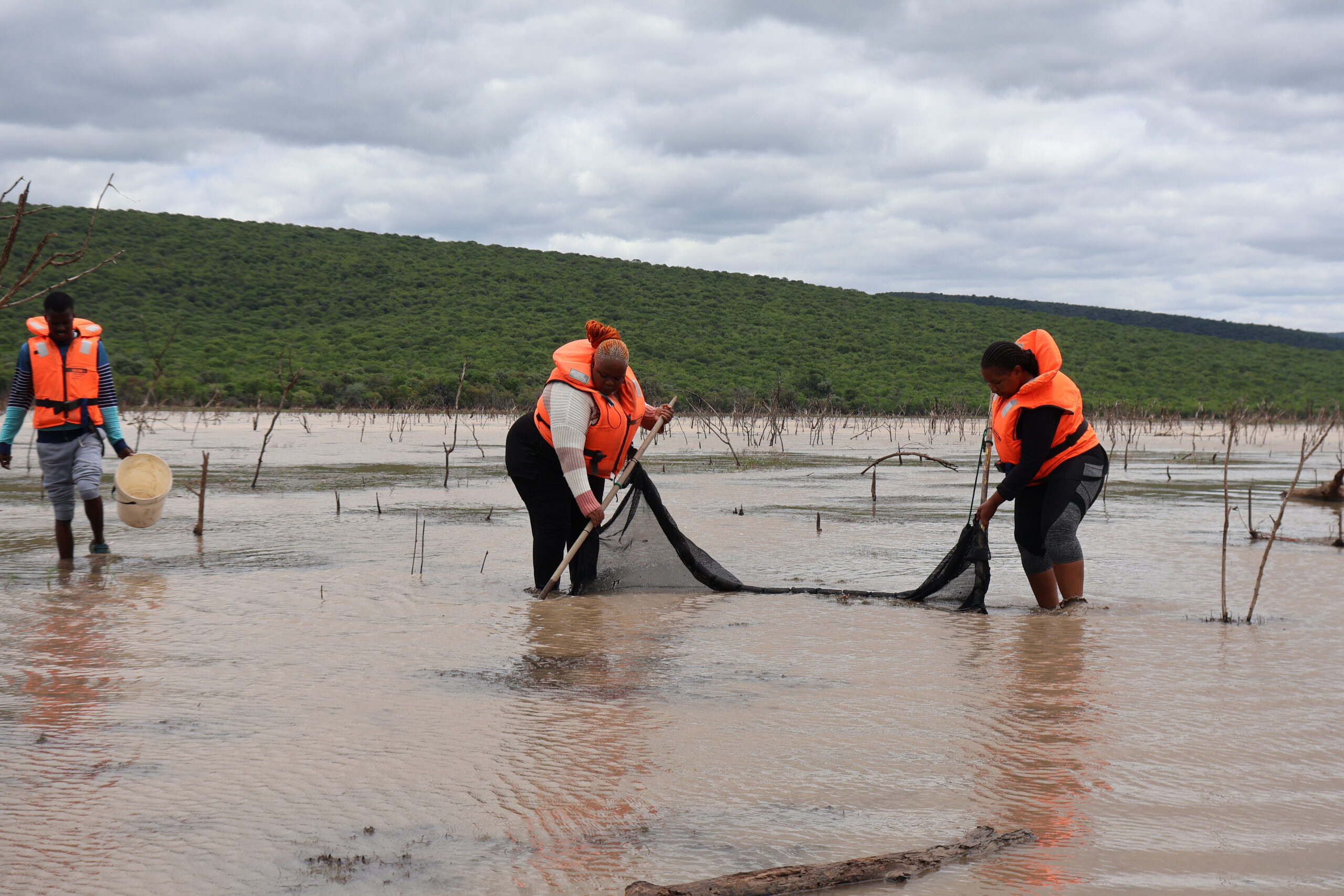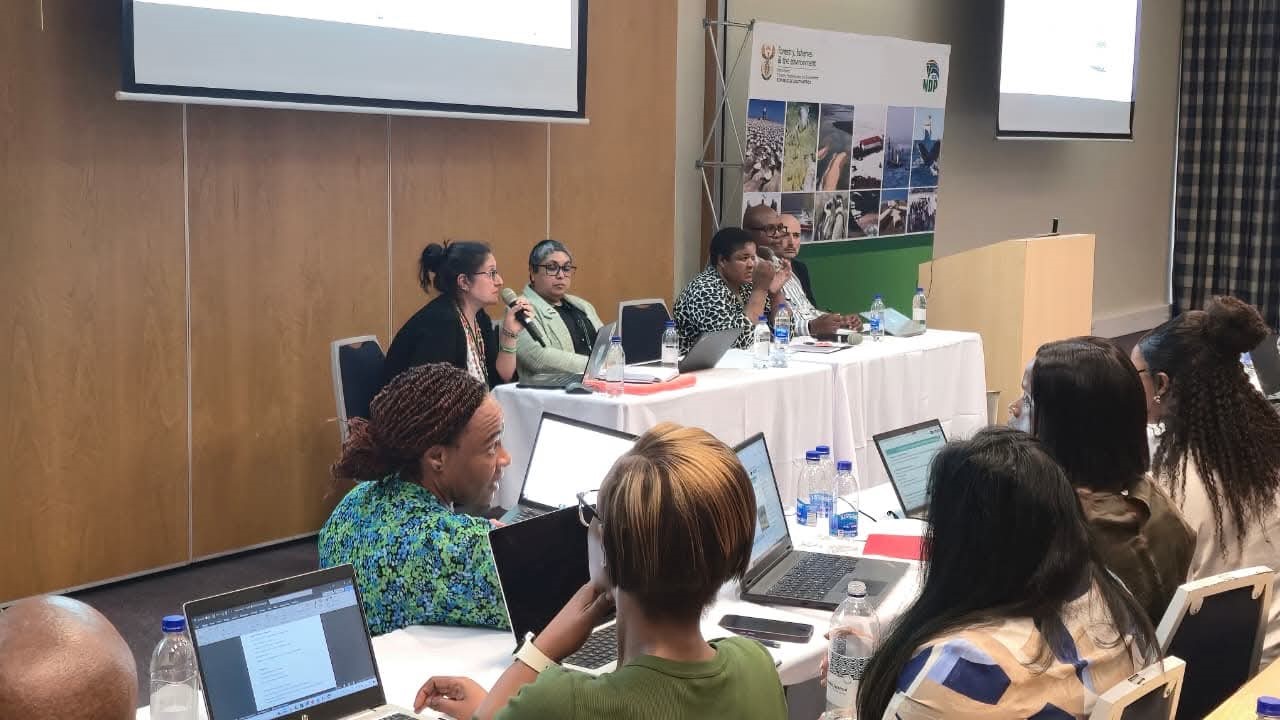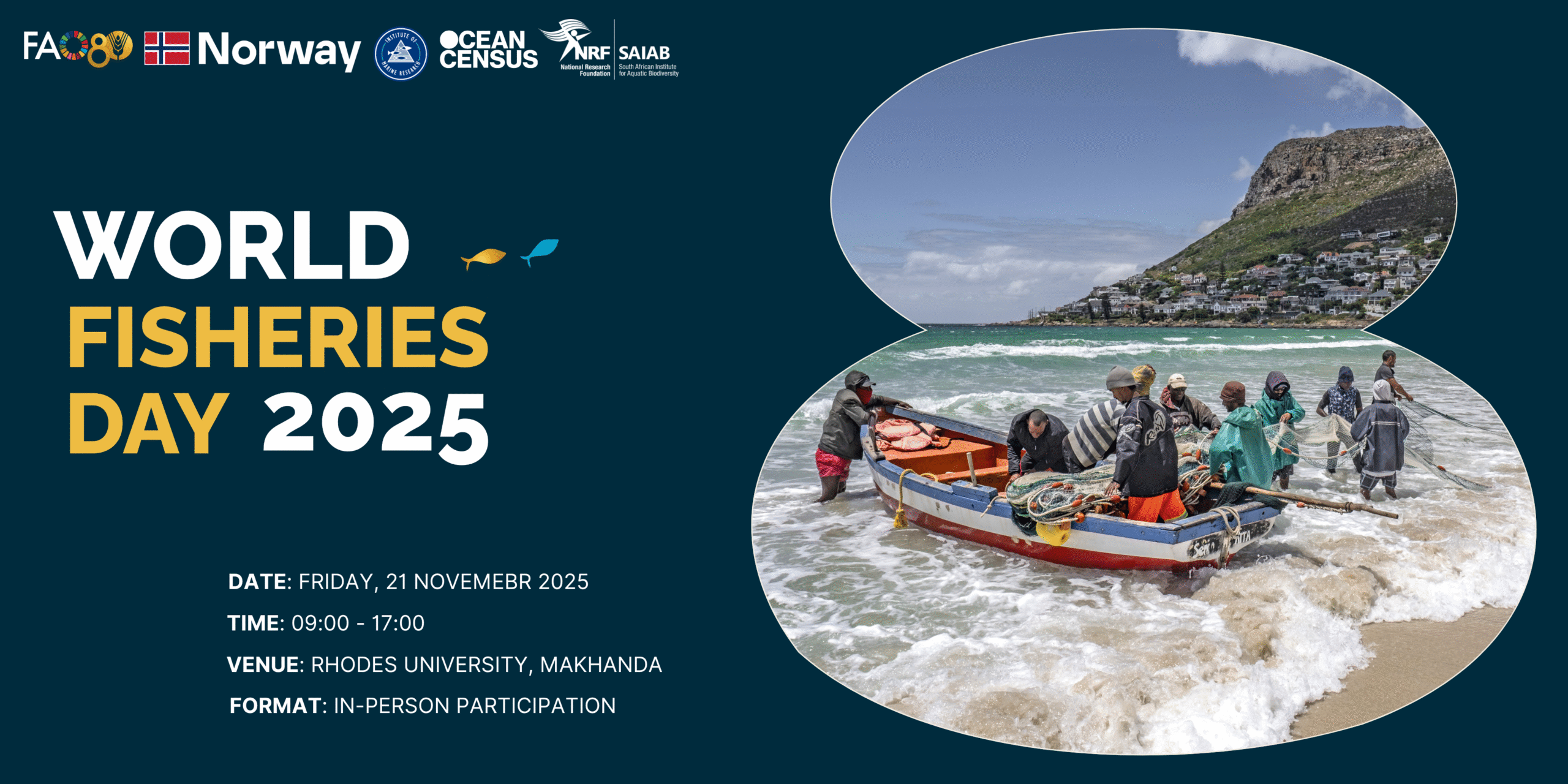By: Nokubonga Mbandzi-Phorego
The NRF-South African Institute for Aquatic Biodiversity researcher, Dr Nokubonga Mbandzi-Phorego visited the Hakai Institute in Quadra Island, Canada for a training workshop on the Global Eutrophication Monitoring (GEM) programme from the 23rd – 27th of September 2024. Nokubonga is a PDP Postdoctoral Fellow with the Coastal and Ocean Sciences Team (COST) at NRF-SAIAB. The training workshop was funded by the Commonwealth Blue Charter Project Incubator with support from The Tula Foundation. The purpose of the GEM training workshop was to build capacity for monitoring and managing eutrophication, by providing a theoretical approach for understanding nutrient pollution in marine ecosystems and technical skills to increase data collection in remote and under-resourced areas, ultimately standardising global-scale datasets.
In South Africa, the COST research group at NRF-SAIAB was a successful recipient of the GEM kit, which will be delivered in 2025. The GEM-in-a-Box kit has been developed for worldwide eutrophication monitoring. It is a cost-efficient kit developed under the Global Eutrophication Monitoring initiative, established by Fisheries and Oceans Canada, in collaboration with The Ocean Foundation and Commonwealth Blue Charter. The kit can assess environmental parameters like total inorganic nutrients, dissolved oxygen, turbidity, conductivity, and temperature aiding in monitoring water quality. In order to monitor and mitigate nutrient pollution in coastal ecosystems, GEM-in-a-Box kit provides an opportunity to assess and monitor eutrophication in a cost-efficient way, effectively increasing data collection in remote areas and standardising global dataset. Globally, the recipients of this kit have included other African countries like Kenya, Cameroon, the Caribbean (The Bahamas, Trinidad and Tobago), Asia (Malaysia, Bangladesh, Sri Lanka), and Oceania (Solomon Island).
In addition to learning the theoretical approach of using the GEM-in-a-Box kit, Nokubonga received hands-on practical training through field work, and conducting laboratory work in the Hakai Institute’s wet and nutrients laboratory.
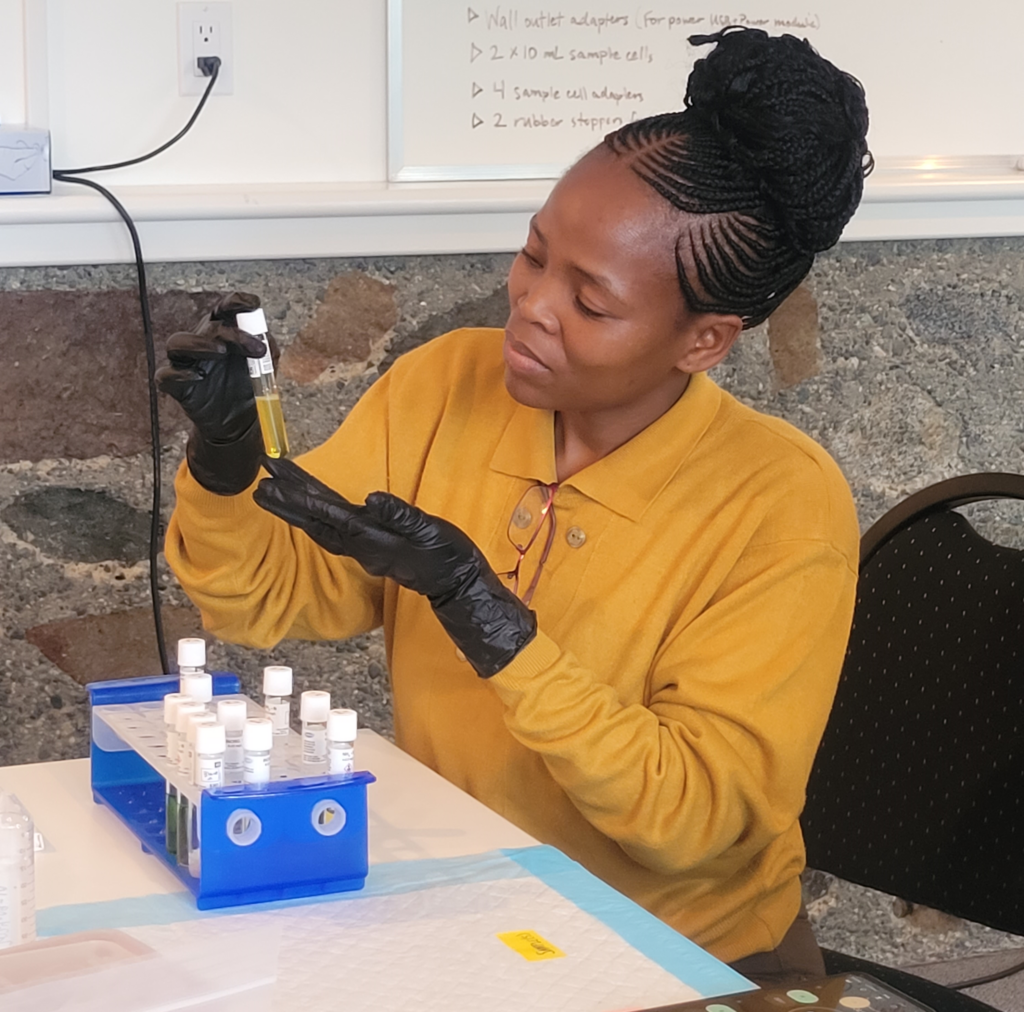
During the training workshop, Nokubonga gave a presentation about the awarded project titled, ‘GEM-in-a-Box for the benefit of South Africans’ on behalf of the NRF-SAIAB COST research group and the NRF-South African Environmental Observatory Network (NRF-SAEON) Elwandle Node. Nokubonga explained that, “Eutrophication is a natural process, however, the rate at which it accelerates due to the oversupply of nutrients to the aquatic ecosystems including marine systems derived from human activities on land, represents a significant global threat to coastal water quality.” Adding that, disparities remain in water quality monitoring technologies, affecting rural communities, the maritime industry and environmental organisations. In addition, “there is a lack of capacity in all governmental organisations – which feeds into how we can use citizen science. Notably, increased access to affordable practices for standardised coastal eutrophication monitoring is fundamental for environmental research, governance, and civil society. There is a need for the availability of open-source data to increase monitoring efforts and manage eutrophication pollution. Thus, GEM-in-a-box provides the opportunity to monitor water quality effectively,” she said.
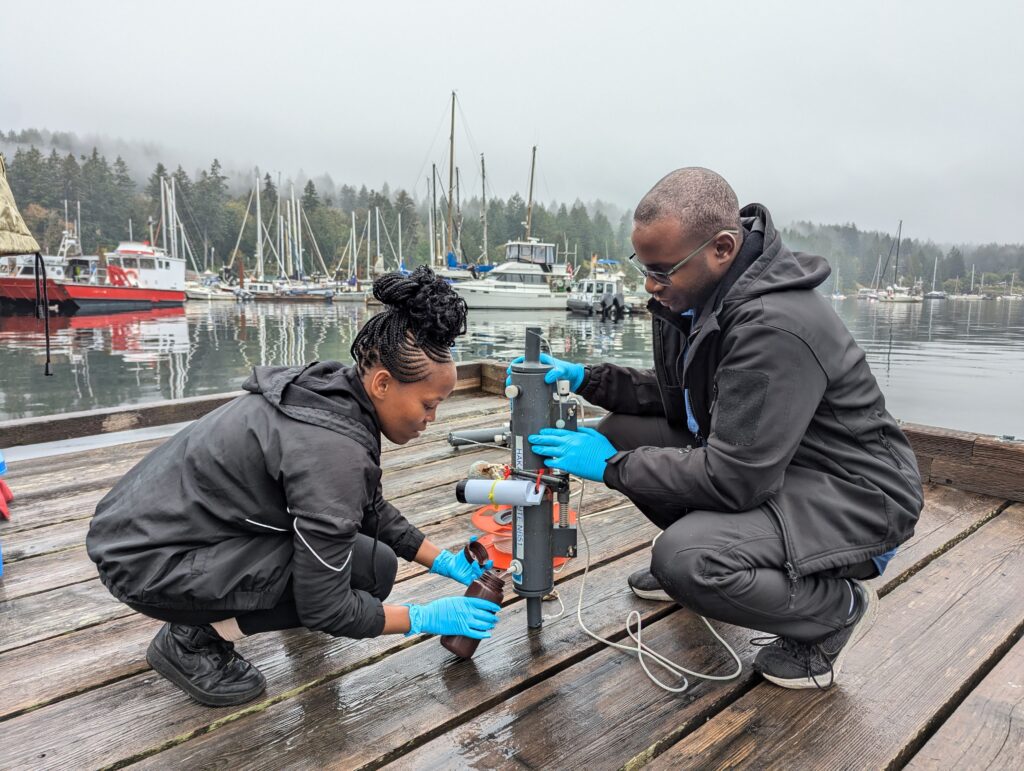
With her newly gained expertise, Nokubonga, will lead the GEM-in-a-Box programme in South Africa. The programme will address the urgent need to assess and monitor nutrient levels due to rapid urban and industrial growth with infrastructure challenges such as inadequate sewage systems. “In the South African context, the oversupply of nutrients in waterbodies has negative socio-economic and environmental health impacts by causing toxic algal blooms, affecting tourism, disrupting recreational activities, compromising food safety, and potentially leading to illnesses in humans,” said Nokubonga. Ensuring open access to data for local authorities, stakeholders, and collaborative networks is crucial to addressing these issues and developing effective solutions.
Nokubonga shared that this training workshop offered an excellent opportunity to “build connections, share knowledge, and establish collaboration on future projects”. Furthermore, she expressed that attending this training workshop contributed significantly to her professional growth, equipping her with new skills and knowledge to enhance her career prospects.
